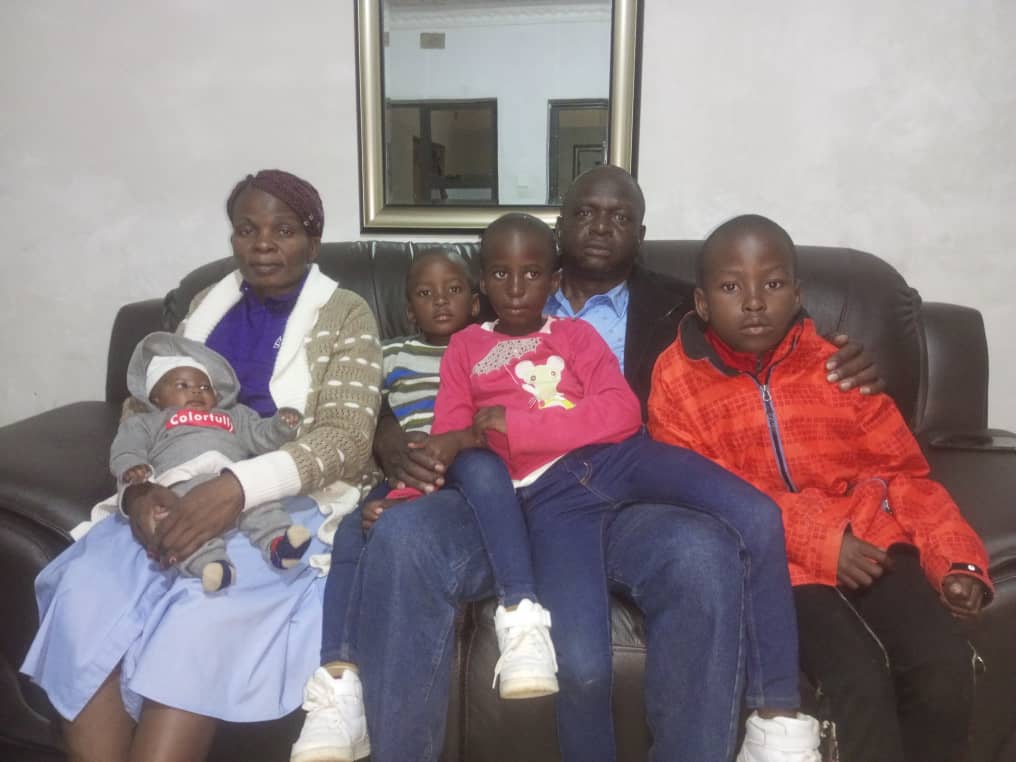|
Getting your Trinity Audio player ready...
|
Writes Muchaneta Chimuka
Infertility is not a choice and it is a hard journey to endure in life but most often, communities take a blind eye to such issues hence blame game becomes the order of the day, especially for women who are expected to be physically pregnant yet at times the ‘problems’ might be on their male partners.
“In my case, my wife endured 14 solid years of suffering and tribulations yet she was indeed fertile,” these are words from a courageous man, Mr. Godknows Mabuwa (53) as he narrates his long journey of infertility.
He said he got married to his sweetheart, Debra Ndudzo, in 2000. Like any other couple, they were expecting their own biological children as early as possible. Little did they know that it was going to be a decade-plus of trials and tribulations.
“I was eagerly expecting to have my own children as soon as possible. Alas, my desire and expectations we in vain. I kept on waiting, with days, months, and years passing by without any glow of hope. Accusations and counter-accusations started in the family on who could be responsible for this failure to have children. I never thought it could be me, as you know in our society women always bear the brunt of this misfortune. This misfortune spread outside the family unit to attract other relatives, friends, workmates, and church members, with some giving us advice while others would laugh and mock us,” Mr Mabuwa lamented.
He said, as pressure from both sides of family members mounted, they ended up seeking assistance from traditional healers and faith healers but the skies proved to have turned a blind eye to them.
They then approached a doctor who conducted some fertility tests on both of them. After treatment, the couple was blessed with a lovely baby boy in 2014. This prompted Mr. Mabuwato to establish the Zimbabwe Fertility Promotion Centre (ZFPC) in 2018.
ZFPC is a non-profit organisation registered in Zimbabwe. The organisation is new but they have made strides in assisting people who are faced with infertility challenges.
“The doctor counselled us and gave us results which almost shocked me. He said there was nothing wrong with my wife’s reproductive system but the problem was with me. However, a sigh of relief erupted when he announced that my problem was just minor and could be resolved by swallowing some pills that he prescribed. During the same week, my wife got pregnant but unfortunately, she miscarried at three months. We tried again and she gave birth to a bouncing baby boy in 2014 and now we have four children altogether,” he said.
The children are Aldenia Russel Mabuwa (boy), Yasha Adel, Alister Kristie, and Shammar Ava Mabuwa (3 girls).
“We created a WhatsApp group with over 120 people who are facing infertility issues but the majority of the members are women because men are very shy to come in the open. It is here where we meet, converse, share, and give testimonies as well as encourage each other to have hope and encouragement because it is the societal shame and stigma that fuels divorce, suicidal issues, blame on women, child theft crimes, lack of self-esteem among other issues especially when couples are battling with infertility issues in the home,” Mr Mabuwa added.
Mr. Mabuwa said some men end up looking after children whom they think are theirs yet their wives would have committed adultery as a way of fulfilling society’s wishes. This usually results in massive domestic violence cases especially when deoxyribonucleic acid (DNA) tests are carried out and results come negative.
DNA tests are hereditary material in humans and almost all other organisms, they can give you lots of information about the genes that make up who you are among other things.
He said, he once counselled a couple whereby the wife managed to send harsh words on WhatsApp to his husband telling him that he is ‘barren’ and all the six children that he has been fending for were not his and this was revealed after they went for a DNA test resulting in a nasty divorce.
Mr. Mabuwa still remembers when someone in his family reminded his first wife they paid lobola for her to bear children so as to keep the family lineage running.
He said there is a need for tackling infertility from a religious, societal, emotional, and spiritual perspective.
Advances in medicine reveal that men and women are equally infertile in many circumstances.
However, infertility continues to be seen as a women’s issue in patriarchal societies, thus gender has consequences such as pressure, stigma on infertile women, abandonment, divorce, polygamy, and domestic violence.
He encouraged couples who are battling fertility issues to join their organisation where free services are provided than suffer in silence.
According to World Health Organisation, infertility is a disability and according to ZFPC’s slogan “Infertility is not a choice”.
Zimbabwe National Traditional Healers’ Association president, Mr. George Kandiero, said in the African Culture, couples are expected to bear children to expand their clan or territory and when that fails, a male member of the family sneaks and has sex with the woman who is alleged to have failed to conceive but nowadays it’s a taboo although it is still being practised anonymously.
According to the National AIDS Council, the practice might fuel the spread of HIV and other sexually transmitted diseases if one of the said parties is already infected.
“In the African context, when adult persons die before bearing fruits (children) The cylindrical shoot or receptacle, in the form of a spike, on which the grains of maize grows in rows “Guri” is tied into the waist before burial. This is meant to appease the bad omen or spirit of not having children from affecting other family members,” he said.
Dr. Japhet Moyo a health care practitioner, specialising as an obstetrician and gynaecologist said infertility can be a result of women being unable to ovulate, sperm mortality, obesity, some forms of family planning methods, stress, and anxiety among other factors.

“Each condition is investigated and a solution can be offered. For example, men with low sperm count can be prescribed fertility medications to boost their capability to have children. To others, it works and to others, it doesn’t. Surrogacy is an arrangement, often supported by a legal agreement, whereby a woman agrees to deliver on behalf of another couple or person who might be faced with infertility issues. In a surrogate pregnancy, eggs from the woman who will carry the baby or from an egg donor are fertilized with sperm from a sperm donor to make an embryo,” he said.
Dr. Moyo said other options to have children can be done outside the womb whereby the woman’s egg is fused with the man’s sperm in a laboratory and help the fertilized egg implant in the uterus (In-vitro fertilization (IVF).
Merck Foundation’s “More Than a Mother”, a cultural shift to de-stigmatize infertility at all levels is aimed at improving awareness, training local experts in the fields of fertility care and media, building advocacy in cooperation with African First Ladies and women leaders, and supporting childless women in starting their own small businesses. It’s all about giving every woman the respect and the help she deserves to lead a fulfilling life, with or without a child.






